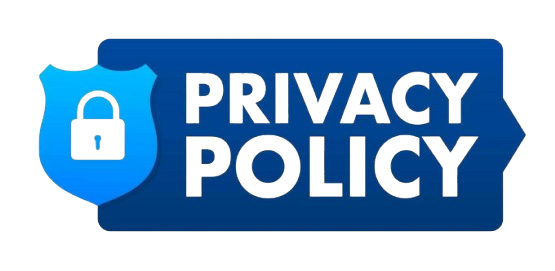Insurance Payers That Accept Mental & Behavioral Health Providers in 2025

Blog Outline
- Introduction
- Mental Health Parity and Coverage Laws
- Insurance Plan Acceptance by Payer Type
- Provider-Specific Insurance Acceptance
- Key Factors That Impact Insurance Acceptance
- Challenges Mental Health Providers Face in Getting Accepted by Insurance
- How MedStates Helps Providers Get Accepted by Insurance Plans
- Conclusion: Take the Next Step in Expanding Your Practice
- Frequently Asked Questions
Introduction
For mental and behavioral health providers, getting credentialed with the right insurance plans is no longer optional, it is essential. Whether you are a psychiatrist, psychologist, counselor, social worker, or ABA provider, being in-network gives you direct access to more patients, steady referrals, and predictable revenue streams. In today’s competitive landscape, patients increasingly rely on their health insurance benefits when choosing a provider, which makes insurance acceptance a critical growth strategy for your practice. Yet, joining insurance panels comes with challenges. Every payer, whether it’s UnitedHealthcare, Aetna, Cigna, Blue Cross Blue Shield, Medicare, or Medicaid, has its own credentialing process, documentation requirements, and reimbursement rules. Some providers, like LCSWs and psychiatrists, are broadly accepted, while others, such as LMFTs, LPCs, or ABA therapists, face state-specific barriers and stricter coverage criteria. Without expert guidance, providers risk delays, denials, and reduced reimbursements that can strain both revenue and patient access. This guide provides a comprehensive overview of which insurance plans accept mental and behavioral health providers, how acceptance differs by provider type, and what factors impact your credentialing and billing success. More importantly, it offers practical solutions. At MedStates, we specialize in credentialing, claims management, and denial resolution for mental and behavioral health practices, ensuring providers get credentialed faster, stay compliant, and maximize reimbursements with less administrative burden.
Mental Health Parity and Coverage Laws
Insurance acceptance for mental health providers is rooted in federal and state laws that require insurers to cover behavioral health services fairly. Understanding these laws helps providers know why insurance panels credential certain specialties and how they can use these rules to their advantage.
The Mental Health Parity and Addiction Equity Act (MHPAEA)
The MHPAEA requires group health plans and insurers to offer mental health and substance use disorder benefits on par with medical and surgical benefits. This means insurers cannot:
- Impose stricter visit limits on therapy than on primary care.
- Charge higher copays for counseling than for other covered medical services.
- Restrict access to mental health providers without offering similar access to other medical providers.
👉 Provider Impact: This law ensures that payers credential psychologists, psychiatrists, LCSWs, and other licensed behavioral health providers to maintain network adequacy.

Affordable Care Act (ACA) and Essential Health Benefits
The ACA expanded coverage by making mental health and substance use services essential health benefits under most individual and small group plans. Every ACA-compliant plan must cover:
- Behavioral health treatment (e.g., psychotherapy, counseling).
- Substance use disorder treatment.
- Preventive mental health screenings.
👉 Provider Impact: This guarantees more insurance opportunities for mental health providers, especially those treating high-demand conditions like anxiety, depression, and ADHD.

Medicaid and State-Specific Coverage Rules
Medicaid is one of the largest payers for behavioral health services. However, coverage rules and eligible provider types vary by state. For example:
- Some states credential licensed marriage and family therapists (LMFTs) and licensed professional counselors (LPCs), while others restrict coverage. [Read more about insurance credentialing services for mental health providers]
- Applied Behavior Analysis (ABA) therapy for autism is now covered in all 50 states, but reimbursement policies differ widely. [Read more about ABA Billing Services]
👉 Provider Impact: Providers must review state-level Medicaid guidelines to confirm which credentials are accepted. Partnering with a billing and credentialing team can help avoid denials and delays.

Insurance Plan Acceptance by Payer Type
Insurance acceptance depends not only on your provider type, but also on the payer. Each program — Medicare, Medicaid, and commercial insurance plans — has its own rules for credentialing and reimbursement. Understanding these differences helps providers make smarter enrollment decisions.
Medicare and Mental Health Providers
Medicare offers broad coverage for mental health, but acceptance depends on provider credentials.
- Accepted Providers: Psychiatrists, clinical psychologists, clinical social workers (LCSWs), and psychiatric nurse practitioners (PMHNPs).
- Covered Services: Individual and group therapy, psychiatric evaluations, medication management, preventive screenings, and telehealth mental health visits.
- Key Challenge: Strict documentation and compliance requirements can lead to claim denials.
👉 Solution: MedStates ensures Medicare-compliant billing, helping providers minimize denials and capture full reimbursement. [Look into our mental health billing services]
Medicaid and State-Specific Coverage
Medicaid is the largest payer of behavioral health services in the U.S., but rules vary by state.
- Psychiatrists, Psychologists, LCSWs, and PMHNPs: Generally covered in all states.
- LMFTs and LPCs: Coverage is inconsistent — some states accept them, others exclude them.
- ABA Providers: Coverage for autism-related services is mandated nationwide, but reimbursement rates and credentialing requirements differ.
- Challenge: Medicaid enrollment and claims processing can be lengthy and complex.
👉 Solution: MedStates handles Medicaid credentialing and billing by state, so providers can focus on care rather than compliance. [Read more on our provider credentialing services]
Commercial Insurance Plans (BCBS, Aetna, Cigna, UHC, etc.)
Commercial payers credential a wide range of mental health providers, but acceptance and reimbursement vary.
- Accepts psychiatrists, psychologists, LCSWs, PMHNPs widely.
- Some plans credential LMFTs and LPCs, but acceptance differs by state.
- Strong network demand for behavioral health providers.
- Actively credentials psychiatrists, psychologists, LCSWs, and PMHNPs.
- Limited acceptance for LMFTs and LPCs depending on plan.
- Covers ABA providers under autism mandates.
Cigna
- Broad acceptance for psychiatrists, psychologists, LCSWs, PMHNPs.
- Reimbursement for therapy sessions is competitive.
- ABA providers accepted under state-specific coverage laws.
- One of the largest credentialers of mental health providers.
- Strong acceptance for ABA providers.
- Expanding telehealth credentialing for psychiatrists and therapists.
👉 Solution Across Commercial Payers: MedStates identifies which plans accept your mental health specialty in your state and manages credentialing applications for faster approvals.
Employer-Sponsored Plans and EAPs
- Many large employers contract with insurers for Employee Assistance Programs (EAPs).
- EAPs cover a limited number of therapy sessions before patients transition into full insurance coverage.
- Providers credentialed with both the EAP and insurer benefit from seamless patient referrals.
Provider-Specific Insurance Acceptance
Each type of mental or behavioral health provider has a different experience when it comes to insurance credentialing and reimbursement. Below is an overview, with links to dedicated deep-dive pages for each provider type.
Psychiatrists
- Widely credentialed by all major payers (Medicare, Medicaid, commercial).
- Strong reimbursement for medication management and psychiatric evaluations.
- Increasing telehealth coverage.
Psychologists
- Covered by nearly all commercial plans, Medicare, and Medicaid.
- Can bill for therapy, psychological testing, and group sessions.
- High demand in outpatient and integrated care.
Licensed Clinical Social Workers (LCSWs)
- Broadly accepted across commercial, Medicare, and Medicaid networks.
- Strong Medicaid coverage for community-based therapy.
- Often reimbursed at competitive rates.
Licensed Professional Counselors (LPCs)
- Historically excluded from Medicare, but now covered.
- Credentialing with commercial insurers varies by state.
- Growing opportunities for Medicaid enrollment.
Licensed Marriage and Family Therapists (LMFTs)
- Newly eligible for Medicare coverage.
- Many commercial insurers credential LMFTs, but state variations remain.
- Valuable for family and couples therapy integration.
Psychiatric Nurse Practitioners (PMHNPs)
- Accepted by most commercial plans, Medicare, and Medicaid.
- High demand due to psychiatrist shortages.
- May face lower reimbursement than MDs but benefit from strong telehealth coverage.
Applied Behavior Analysis (ABA) Providers (BCBAs, RBTs, Clinics)
- Coverage for autism therapy mandated in all 50 states.
- Credentialing available through commercial insurers and Medicaid.
- Credentialing requirements differ for clinics vs. individual providers.
Substance Use Disorder Counselors & Clinics
- Medicaid and commercial plans expanding coverage for addiction treatment.
- Credentialing requirements vary depending on certification (CADC, LCDC, etc.).
- Many plans require clinic-level enrollment in addition to individual credentials.
Behavioral Health Group Practices
- Eligible for both commercial and Medicaid panels.
- Often credentialed under a group NPI, with providers credentialed individually.
- Streamlined billing and referrals when properly enrolled.
Key Factors That Impact Insurance Acceptance for Mental Health Providers
Not every mental health provider is credentialed equally across all insurance plans. Insurers consider several factors when deciding whether to add a provider to their network. Understanding these variables helps providers position themselves for acceptance and anticipate potential hurdles.
1. Licensure Requirements (State-Specific)
- Each state has different credentialing rules.
- Some states allow LPCs and LMFTs to bill Medicaid, while others restrict them.
- ABA providers often require state-specific certification in addition to national credentials (e.g., BCBA).
Impact : If your license type isn’t recognized by the state’s insurance regulations, your application may be denied.
2. Type of Service Offered
- Psychiatrists & PMHNPs: Medication management and evaluations are highly sought after.
- Psychologists & LCSWs: Therapy and testing services are widely covered.
- ABA Providers: Autism-related therapy is mandated, but reimbursement varies.
Impact : Payers credential providers based on service gaps in their network. High-demand services improve acceptance chances.
3. Telehealth Policies
- Many insurers now credential telehealth providers, but rules differ:
- Medicare: Covers both video and audio-only visits (with restrictions).
- Commercial Payers: Some only cover video-based therapy.
- Medicaid: State-dependent coverage for telehealth.
Impact : Providers offering compliant telehealth services are more attractive to payers, especially in underserved areas.
4. Reimbursement Rates
- Medicare: Standardized but lower than commercial plans.
- Medicaid: Often the lowest reimbursement, but essential for access to underserved populations.
- Commercial Plans: Generally higher rates, but contracts vary by state and payer.
Impact : Reimbursement rates affect both provider revenue and willingness to join certain networks.
By understanding these factors, mental health professionals can target insurers more strategically, avoid unnecessary denials, and maximize network participation. At MedStates, we analyze each provider’s license, services, and state rules before submitting applications, ensuring you apply only to payers that will credential you
Challenges Mental Health Providers Face in Getting Accepted by Insurance
Even though demand for behavioral health is rising, providers often face hurdles when trying to join insurance networks. These challenges delay patient access and reduce practice revenue if not addressed strategically.
1. Lengthy Credentialing Timelines
- Insurance credentialing can take 90–120 days (sometimes longer for Medicaid/Medicare).
- Errors or missing documents reset the process, delaying acceptance.
Solution: Our team researches payer-specific and state-specific rules before applying, so providers don’t waste time on rejected applications.
2. Inconsistent Acceptance Across Provider Types
- LCSWs and psychologists are widely accepted, but LMFTs, LPCs, and ABA providers face state-specific restrictions.
- Medicare’s coverage expansion in 2024 created confusion for LMFTs and LPCs joining networks.
Solution: Our team researches payer-specific and state-specific rules before applying, so providers don’t waste time on rejected applications.
3. Reimbursement Rate Disparities
- PMHNPs often get lower rates than psychiatrists.
- ABA therapy reimbursement varies drastically by payer and state.
- Out-of-network reimbursement cuts reduce provider revenue.
Solution: We help providers negotiate payer contracts strategically to secure better rates.
4. Complex Documentation & Compliance
- Medicare and Medicaid require strict documentation for therapy, medication management, and ABA sessions.
- Small errors lead to denials, audits, or repayment requests.
Solution: MedStates offers billing and compliance oversight to keep claims audit-ready.
5. Limited Network Slots
- Some payers cap their behavioral health panels, making it hard for new providers to join.
- High-demand areas (e.g., urban centers) are especially competitive.
Solution: We identify open panels and pursue multi-payer enrollment strategies so practices aren’t dependent on one payer.
6. Provider Burnout from Administrative Work
- Independent providers often spend more time on paperwork than patient care.
- Credentialing, contract follow-up, and appeals drain practice resources.
Solution: Outsourcing to MedStates allows providers to focus on patients while we handle backend operations.
Why This Matters
By understanding these challenges, mental health providers can make better decisions about which insurance plans to pursue. Partnering with a billing and credentialing service like MedStates ensures you spend less time battling red tape and more time growing your practice
How MedStates Helps Providers Get Accepted by Insurance Plans
Getting credentialed with insurance companies can feel overwhelming — long forms, repeated follow-ups, and inconsistent requirements between payers. At MedStates, we simplify this process for mental and behavioral health providers by handling everything from start to finish.
1. Credentialing and Payer Enrollment
- We manage complete credentialing applications for Medicare, Medicaid, and commercial insurance panels.
- Our team verifies all documentation to avoid rejections and delays.
- We track applications across multiple payers and provide real-time status updates.
Result : Faster approvals and fewer errors so you can see patients sooner.
2. State-Specific Compliance Support
- Each state has unique rules for LMFTs, LPCs, and ABA providers.
- We research requirements ahead of time and prepare compliant applications.
- This reduces wasted effort on panels that don’t accept your license type.
Result : More approvals with less wasted time.
3. Contract Negotiation & Reimbursement Optimization
- We analyze payer contracts to help you understand reimbursement rates.
- When possible, we negotiate fairer terms for therapy, testing, and ABA services.
- Providers gain transparency into which plans offer the best long-term value.
Result : Higher revenue and stronger financial stability for your practice.
4. Claims Management & Billing Support
- Acceptance into networks is just the first step — billing correctly ensures you get paid.
- We handle claim submissions, denials, and appeals with every payer.
- Our systems ensure compliance with Medicare, Medicaid, and commercial billing rules.
Result : Steady cash flow without billing headaches.
5. Ongoing Support for Practice Growth
- We don’t stop at credentialing.
- Providers get help with re-credentialing, payer audits, and adding new clinicians to group practices.
- We align your network participation with your growth goals.
Result : Scalable, stress-free growth with insurance contracts that work for your practice.
Why Partner with MedStates?
By outsourcing credentialing and billing to MedStates, providers:
- Save time on administrative work.
- Avoid common pitfalls that delay approval.
- Gain access to more patients through accepted insurance networks.
- Improve reimbursement and financial outcomes.
Next Step: Whether you’re a solo practitioner, a group practice, or an ABA clinic, MedStates helps you get credentialed faster and paid more reliably. Contact us now!
Conclusion: Take the Next Step in Expanding Your Practice
Getting accepted by the right insurance plans isn’t just about compliance—it’s about growth, access, and sustainability for your mental and behavioral health practice. From psychiatrists and psychologists to ABA therapists and social workers, every provider needs the right payer partnerships to keep their schedules full, their claims paid, and their patients supported.
At MedStates, we simplify the entire process. Our team helps you:
- Get credentialed with major insurance carriers quickly and accurately.
- Stay compliant with mental health parity and state-specific coverage laws.
- Reduce claim denials through precise billing and payer-specific knowledge.
- Focus on patient care while we handle the credentialing, VOBs, and reimbursement details.
✔️ Don’t lose patients because your practice isn’t on their insurance network.
✔️ Don’t leave money on the table with delayed or denied claims.
✔️ Don’t waste hours trying to navigate complex payer requirements on your own.
Your next step is simple:
[Schedule a Free Consultation with MedStates] and let us guide you through insurance acceptance, credentialing, and billing—so you can grow your practice with confidence.


